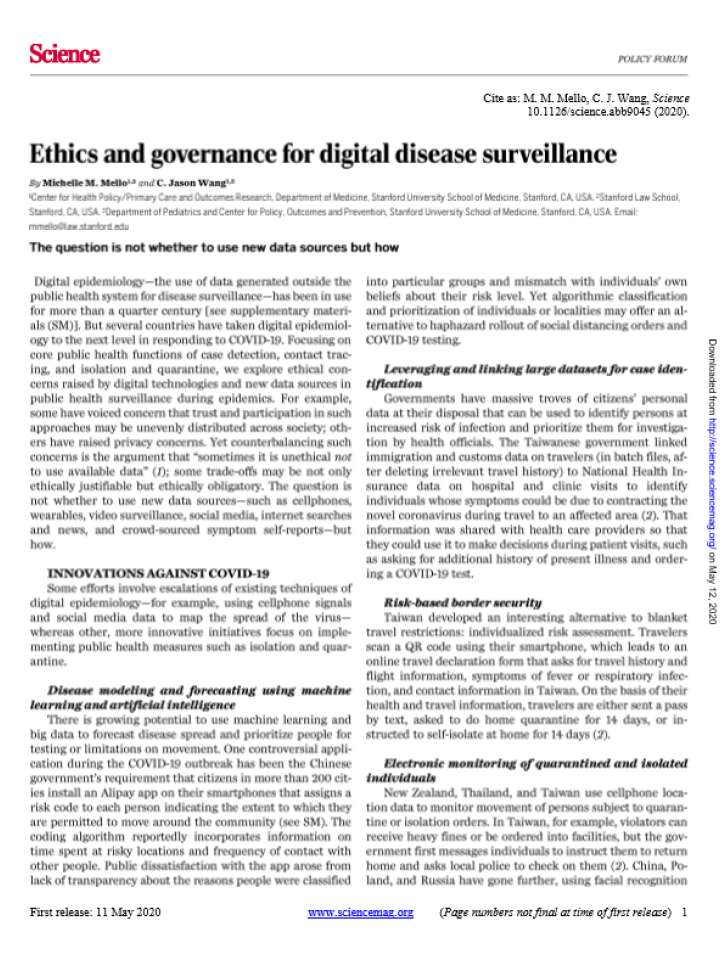Ethics and governance for digital disease surveillance
Digital epidemiology has been in use for more than a quarter-century but several countries have taken digital epidemiology to the next level in responding to coronavirus disease 2019 (COVID-19). Focusing on core public health functions of case detection, contact tracing, and isolation and quarantine, the authors explore ethical concerns raised by digital technologies and new data sources in public health surveillance during epidemics.
This paper concludes that:
- When any of these technologies are implemented, it should be through a thoughtful and transparent process. The authors, in fact, endorse prior calls for an oversight process by a body that includes members of the public and focuses on particular uses of the data.
- The news media and watchdog organizations will continue to be important mechanisms for accountability, but effective oversight requires access to full information about what will be done, how, and why.
- Sturdy oversight structures are not easy to stand up in the middle of an emergency. Work will be needed after the COVID-19 threat fades to ensure better preparedness next time.
- There has been much talk of harnessing the power and ingenuity of the tech sector to fight disease outbreaks, but “harnessing” implies carefully placed constraints and firm direction by a driver.
Explore further
